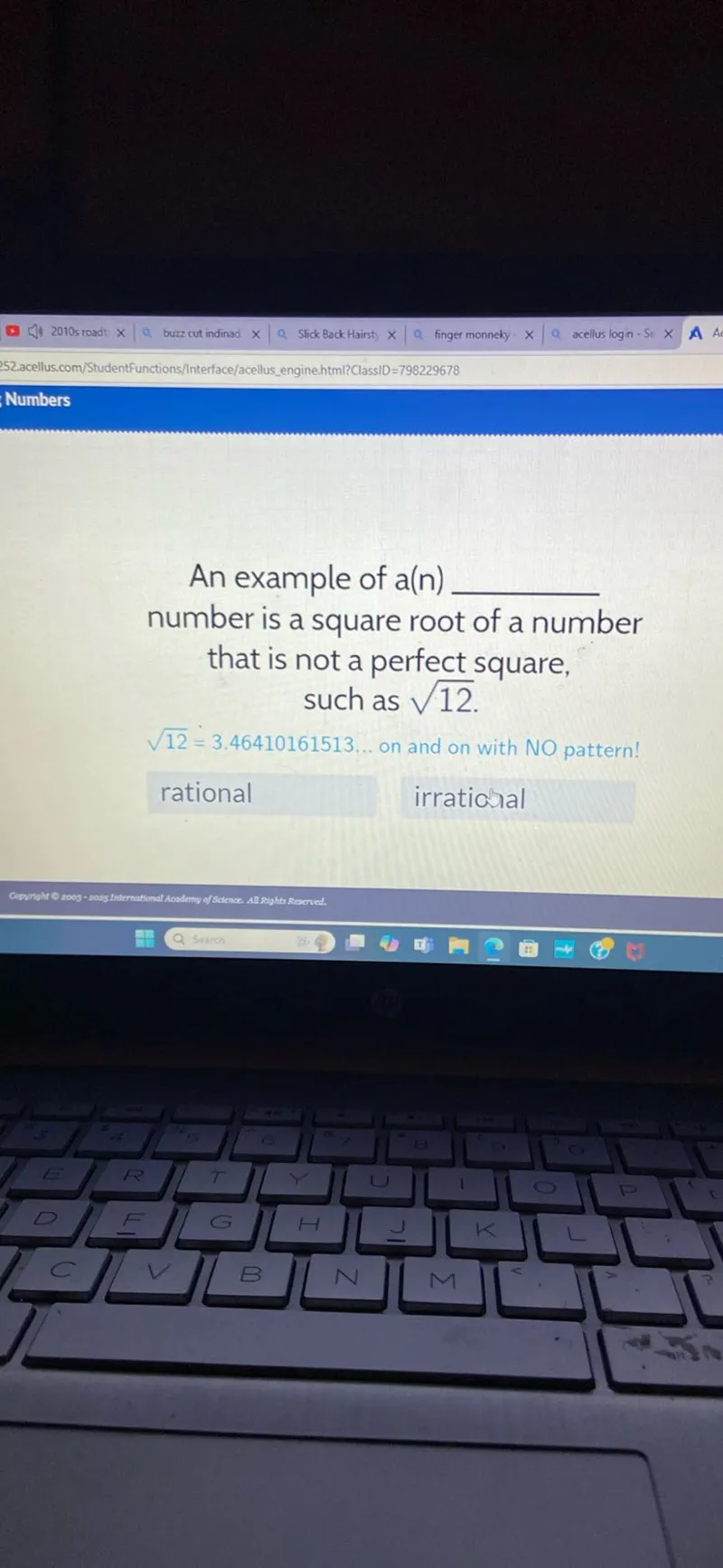Questions: An example of a(n) number is a square root of a number that is not a perfect square, such as √12. √12=3.46410161513 on and on with NO pattern! rational irrational

Transcript text: An example of a(n) $\qquad$ number is a square root of a number that is not a perfect square, such as $\sqrt{12}$.
$\sqrt{12}=3.46410161513 \ldots$ on and on with NO pattern! rational irrational





